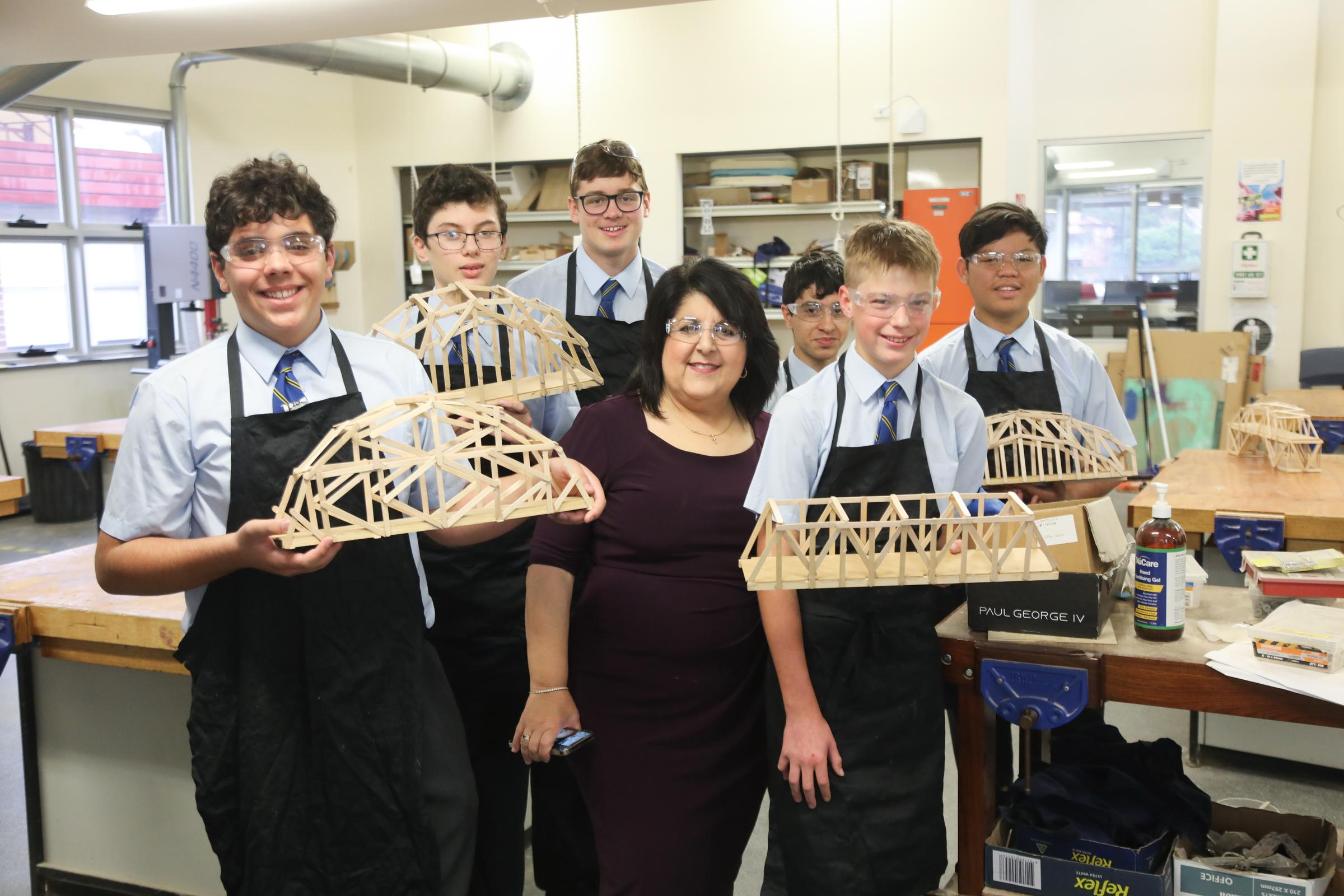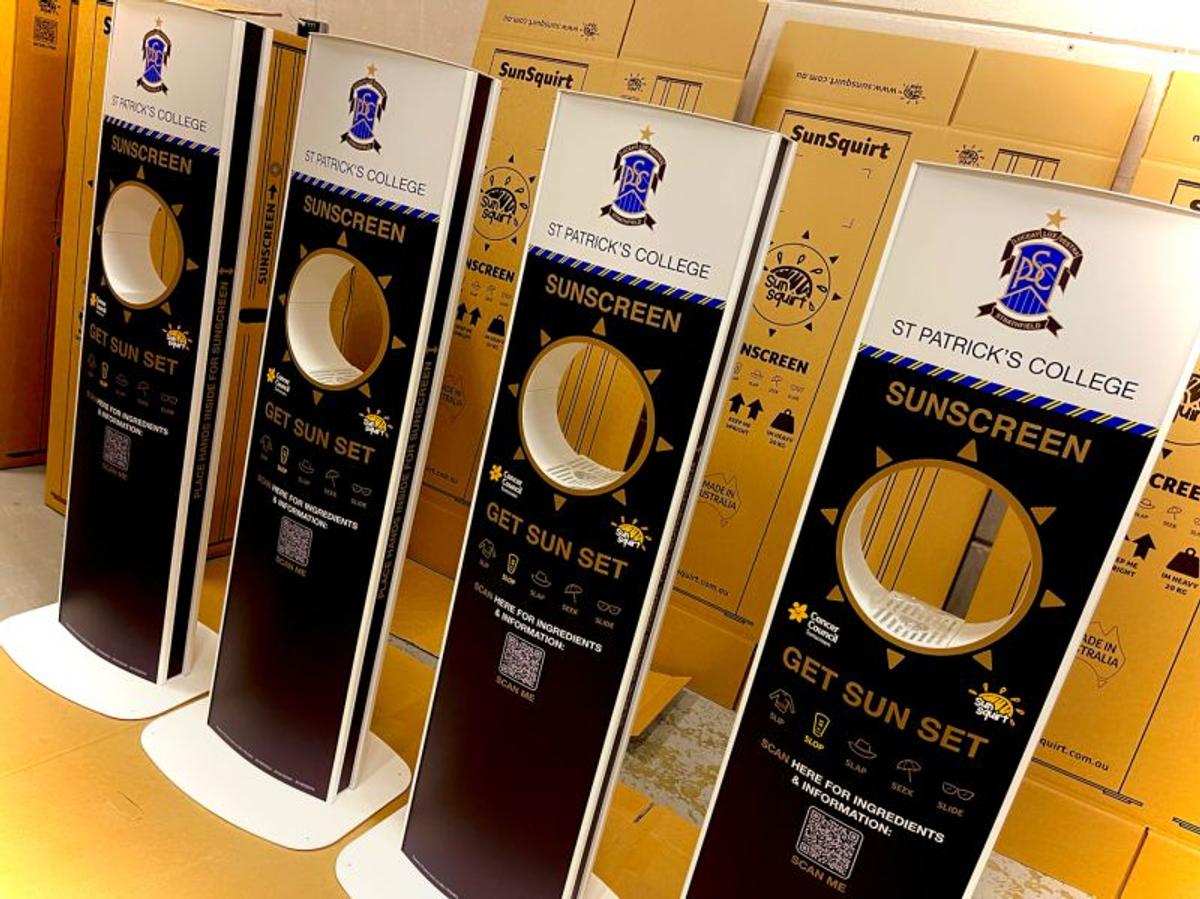Principal

Helping your family manage uncertainty
Uncertainty is part of life and yet our brain, which creates our thoughts and feelings, loves certainty and predictability.
The pandemic has created more uncertainty in families, schools, and communities than most people can recall in their lifetimes. With our current campus restrictions, more stress and anxiety may well be triggered. In small doses anxiety heightens your sense of focus, giving you an increased level of energy, and increases your chances of managing a potential challenge that has appeared. In large doses, this anxiety is problematic as it can cause feelings of being overwhelmed and even panicked. We are certainly finding that our boys are quite unsettled at the moment, over and above what you would expect as we near the summer vacation. The boys’ relationships and friendships have been really strained and we are finding the stress is causing boys to make poor decisions.
The lesson of being real
Many fears and unexpressed emotions lie beneath the stress of navigating uncertainty. Be prepared to share your emotions with your children, especially feelings of sadness. They experience grief every time they lose the opportunity to spend time with loved ones, go on holiday or return to school to see friends.
Grief is not a sign of weakness. It shows you are human. Let your children see you cry and give them the agency to know what to do. They can grab a tissue, they can give you a hug and, if they’re old enough, they can make you a cuppa.
Your children need to see that when bad things happen to adults, they can feel upset for a time. There are many ways you can help children cope with uncertainty.
Normalise uncertainty
Teach your children that nothing is permanent. Good things come and go. So will tough times. Change is a part of life and can be positive or challenging. Share stories about how your family recovered from hard times. Adaptability and flexibility are key components of resilience, which can be nurtured in childhood.
Make choices that ease fear and anxiety
Remind your children and young people that they are not powerless. Resting, reading, and relaxing are great tools to ease fear and anxiety. This might include taking deep breaths, listening to music, or making others laugh. Getting outside to play or walk the dog is another simple way to ease the nervous system.
Focus on the things you can control
Simple habits and routines really make a difference. When everything is changing, routines and rituals such as regular family mealtimes, bedtimes and wake up times help maintain a sense of normality. These rituals provide an important anchor helping them feel in control.
Encourage your kids to have a ‘gratitude attitude’
Though times are no doubt really tough for many, you can choose to feel grateful for the things you have, and the people you love, and you can model this mindset with your children.
Maintain hope
Hope is an important antidote to feeling stuck in fear. Encourage feelings of hope by sharing wonderful memories via photos or videos which can lift everyone’s spirit. Plan a new experience to happen when that becomes a possibility.
Children and young people need to understand that life can be an unpredictable ride and together you can adapt and find a way through to each new day.
The greatest tool you have as a parent or carer in these times is to remember that you are the 'safe base' for your children and young people. If you can embody that, and help them feel that no matter what, your love and support is a certainty, then the uncertainty around us all becomes a lot more manageable.
(Advice from Maggie Dent who is host of the ABC podcast, Parental As Anything. She is the mother of four sons and a very grateful grandmother. For further details visit maggiedent.com)
Parents' WhatsApp Groups
Thank you to all the parents and carers who have reached out in the last week to alert me to the way that WhatsApp is being used by parents/carers in different year groups. Whilst a great and convenient way to share information quickly, at its best, the class WhatsApp group offers connection in the fast-paced, multitasking world of modern parenting. At its worst, it spreads misinformation and pits parents/carers against school staff. What I have read this week would seem that the latter is occurring.
I have read all sorts of comments about the purported large number of COVID-19 positive students at St Patrick's College; this is simply not true and to date, we have not had to go back into lockdown with any year group.
At this time of year, as we reflect on the year that was, it is clear some boys have had their learning disrupted during the remote learning period. But I remind our parents and carers of the year that was: teachers pivoting at the last moment to go to online learning, changing of Trial and HSC dates, confusion over sports etc., has meant a terribly disrupted year for all.
As the Principal, I will continue to urge unhappy parents and carers to contact the school directly about concerns rather than letting them mushroom online. My big worry is when the chat starts to mention an individual teacher. I have a duty of care towards that teacher, a duty of care also shared by all members of the school community.
When you read about a situation in a WhatsApp chat, you have to bear in mind that the parents/carers posting negative information aren’t in the class and they’re not the students. Nor do you read ALL the facts about a situation. There’s a dynamic of entitlement in passing judgement on us as a school community without having all the facts. There may be complex and personal details involved and it is these complexities that are often behind unpopular decisions or a perceived lack of action.
In what I have read this week, I would compare the one-sided information and accompanying comments on WhatsApp to road rage. We’re all happy to shout and gesticulate at the wheel but we’re unlikely to hurl the same abuse facing someone. WhatsApp is us shouting together from behind one wheel.
Research carried out by Massachusetts Institute of Technology in 2018 found that false stories are 70 per cent more likely to spread on Twitter than the truth. A similar pattern can emerge on parents’/carers’ WhatsApp groups.
Such misinformation is often carried out by a vocal few, a well-established phenomenon of ‘participation inequality’. According to one report, up to 90 per cent of users ‘lurk’, 9 per cent communicate a little and just 1 per cent – dubbed by some as ‘informers’ – provide most of the action.
There is simply no substitute for the continued existence of face-to-face communication channels that allow close contact which creates trust and professional working relationships between parents/carer and educators. There is a Complaints Handling Guide on the College website.
I will continue to send parents/carers direct communication from the College, particularly about potential COVID-19 transmissions. You can put your faith in this direct communication and if it is not clear enough, I would like you to let me know. When it comes to negative feedback about teachers, I would caution parents/carers to consider their son’s privacy. These messages are being read by our young people and it’s disappointing to see a young lad discover that his learning issues are being made public. Furthermore, the teachers and school leaders at St Patrick's College have no right of reply. We will continue to focus on doing our very best each day for each and every young man, in the spirit of the Edmund Rice tradition.
Sun Safety
Your son’s wellbeing is important to us, and I thank Mr Chase for taking the lead in developing an easy system for students to access sunscreen.
We have commissioned sunscreen dispensers, not unlike the ones you see about for hand sanitiser. We will be using approved Cancer Council sunscreen and trust our boys will take advantage of their convenient mode of dispensing. It only takes a few moments to apply but will protect their skin as they move into adulthood.
Wonderful Recognition
I would like to publicly acknowledge a young man in our school for the example he sends to others, not only in his service to the community, but in his spirit of volunteerism, especially in these challenging times.
Daniel Goldsmith (Year 7) participated in the Cook4Good and School Online Holiday Programsduring the September school holidays, and who, despite the isolation of lockdown, stepped forward to give back to others during such a difficult time.
Kids Giving Back is a charity whose mission is to "Create the Next Generation of Generosity". We achieve our mission by providing hands on, age-appropriate meaningful opportunities for youth aged 6 to 18 years and their families, to assist vulnerable people in the community. This year, Kids Giving Back reached the milestone of 32,000 participants in their programs since they began in 2012.
Keep in your prayers
Ethan Aflak (Year 8) who is battling a serious health condition in the Children’s Hospital at Randwick. Keep him at the forefront of your prayers and pray for a speedy recovery.
In Memoriam
We keep in our prayers Ms Jan Ovijach (Performing Arts) whose mother, Betty Irene Miller, passed away peacefully in the early hours of last Saturday morning.
We keep in our prayers the family of Frank Malkoun Senior, who recently passed away. Mr Malkoun is the father of Old Boys Ray (’01 Vice Captain), Frank (’03 Captain and brother-in-law of Mr Anthony Calavassy, Head of Sport), John-Paul (’04), Greg (’06) and Ben (’13).
Eternal rest grant unto them O Lord and let perpetual light shine upon them.
May they rest in peace.
Amen.
Dr Vittoria Lavorato
Principal
SPC boys can do anything!
**except divide by zero


